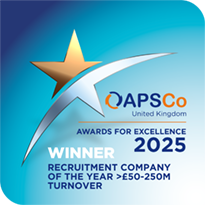Creating a workplace that values equity, diversity, and inclusion (ED&I) is crucial for businesses looking to attract top talent. In today's world, job seekers are not only looking for a company that offers competitive salaries and benefits, but also one that prioritises ED&I to give them an insight into how they treat their people.
This goes beyond just ticking off boxes on a diversity checklist; it's about creating a culture where everyone feels respected, supported, and empowered. We explore why a clear ED&I strategy is needed to attract and retain the best talent.
What is equity?
Equity is about fairness and equality. It's not just about equal access to opportunities, but also recognising that the tools and support needed by people may be different to allow each of them to achieve the same outcome.
To achieve equity in your workplace or organisation, you need to think about what barriers exist for people who are underrepresented or marginalised based on their identities. You should also consider whether you have policies or programmes that support diversity and inclusion.
How is equality different to equity?
Equity is about understanding that not everyone will start out in the same place, so you may need to provide additional tools or support to ensure fairness. Accommodations may be needed, or a change in work environment may be a fair way to level the playing field.
Equity is sometimes confused with equality, which is treating everyone equally regardless of their background or circumstances.
For example, a colleague with visual impairment may require a different workstation set-up to other colleagues - and without these modifications will not have an equally comparable environment to help them. Whereas autistic people may thrive better in a work from home remote working environment, compared to a high sensory environment such as a busy open plan office.
What is diversity?
Diversity is the variety of people, cultures and ideas that exist in your workplace. It's about recognising, respecting and valuing difference.
There are 9 protected characteristics under the UK's Equality Act 2010, and these are:
● Age
● Disability
● Gender reassignment
● Marriage or civil partnership
● Pregnancy and maternity
● Race (including colour, nationality, ethnic and national origin)
● Religion or belief
● Sex
● Sexual orientation
It's important to understand each of these characteristics, to ensure everyday business decisions and processes do not exclude anyone.
What is inclusion?
Inclusion is about valuing everyone. It's about creating a culture where everyone feels like they belong and can contribute to the team, regardless of their background or identity, and where difference is seen as a benefit to utilise.
Inclusion also means that every employee has the opportunity to be heard, no matter how different their perspective may be. Inclusion is about creating a shared sense of purpose - a clear understanding of why you do what you do as an organisation that makes sense for all employees, regardless of race or gender identity or sexual orientation.
Why are equity, diversity and inclusion important for your business?
Equity, diversity and inclusion helps drive innovation and creativity. Companies with more diverse workforces can have higher rates of productivity and revenue growth than those without them.
Insight from PwC for example, identified that organisations with greater gender diversity are 1.4 times more likely to have sustained, profitable growth.
By developing an inclusive recruitment strategy, businesses are able to access a much broader candidate market, to allow them to bring the best talent into their business.
How should businesses approach equity, diversity and inclusion within their recruitment processes?
First, you'll need to understand your business needs. What are you hoping to achieve? Are any ED&I objectives you've set achievable in your current candidate market? Where do you need to make changes to reach the right people?
Partnering with a recruitment specialist can help you to better understand the candidate market, highlighting gaps in your recruitment processes and missed opportunities to attract more applications.
A recruitment partner can help you devise inclusive recruitment processes, by drawing on their expertise. At NRL, we work with businesses to help them attract talent from all different backgrounds - whilst promoting the inclusive culture our clients have worked hard to achieve. Understanding that when an employee feels valued and represented, they're able to do their best work.
Partnering with a recruitment specialist to understand the candidate market
It's important to partner with a recruitment specialist who understands equity, diversity and inclusion. Here at NRL, for example, we provide comprehensive ED&I training for our recruiters and are proud to hold the Association of Professional Staffing Companies' Inclusive+ Recruiter certification across our operations.
This helps us to build strong talent pipelines for our clients by looking at how we can make roles as inclusive as possible. Looking at how job vacancies can be promoted differently to attract a wide range of candidates and encourage people from all walks of life to apply.
Developing an ED&I strategy for your business
The creation of an equity, diversity, and inclusion strategy is an important step for any business looking to create a more inclusive workplace.
Our insights guide offers valuable resources and information to help businesses tailor their approach to their specific needs and goals. By utilising this guide, businesses can ensure that they are creating a workplace culture that values diversity, fosters inclusion, and cultivates equity.


.png)


.png)


